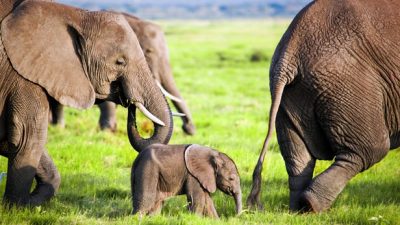WWF Report Reveals a 60% Decline in Wildlife Populations Since 1970

The World Wildlife Fund (WWF) has released its latest Living Planet Report, an assessment of the health of our planet, and it paints a rather grim picture of the damage caused by humanity’s growing footprint on Earth.
Humanity’s need for food and energy were noted as the most damaging factors, and two years on the reading doesn’t get any better. The demand we place on the planet’s natural resources to fuel our lifestyles continues to take a huge toll on biodiversity around the world. So much so, the WWF now says we’ve seen an average 60 percent decline in mammal, bird, fish, reptile and amphibian populations between 1970 and 2014, the year that data was last available.
This figure is based on the WWF’s Living Planet Index, which tracks global diversity by monitoring 16,704 different populations of more than 4,000 vertebrate species around the world.
Habitat loss and degradation, along with behaviours like overfishing and overhunting, are listed as the top threats to animal species. The report also states that Earth has lost an estimated 50 percent of its shallow water corals in the last 30 years, along with a startling 20 percent of the Amazon.
“This report sounds a warning shot across our bow,” says Carter Roberts, president and CEO of WWF-US. “Natural systems essential to our survival – forests, oceans, and rivers – remain in decline. Wildlife around the world continue to dwindle. It reminds us we need to change course. It’s time to balance our consumption with the needs of nature, and to protect the only planet that is our home.”
Despite the disheartening statistics, the WWF points out that it’s not too late to turn things around, and that protecting nature helps protect people. The key challenge is changing our approach to development, which requires a global effort.
*
Note to readers: please click the share buttons above. Forward this article to your email lists. Crosspost on your blog site, internet forums. etc.
Featured image is from Photocreo/Depositphotos

